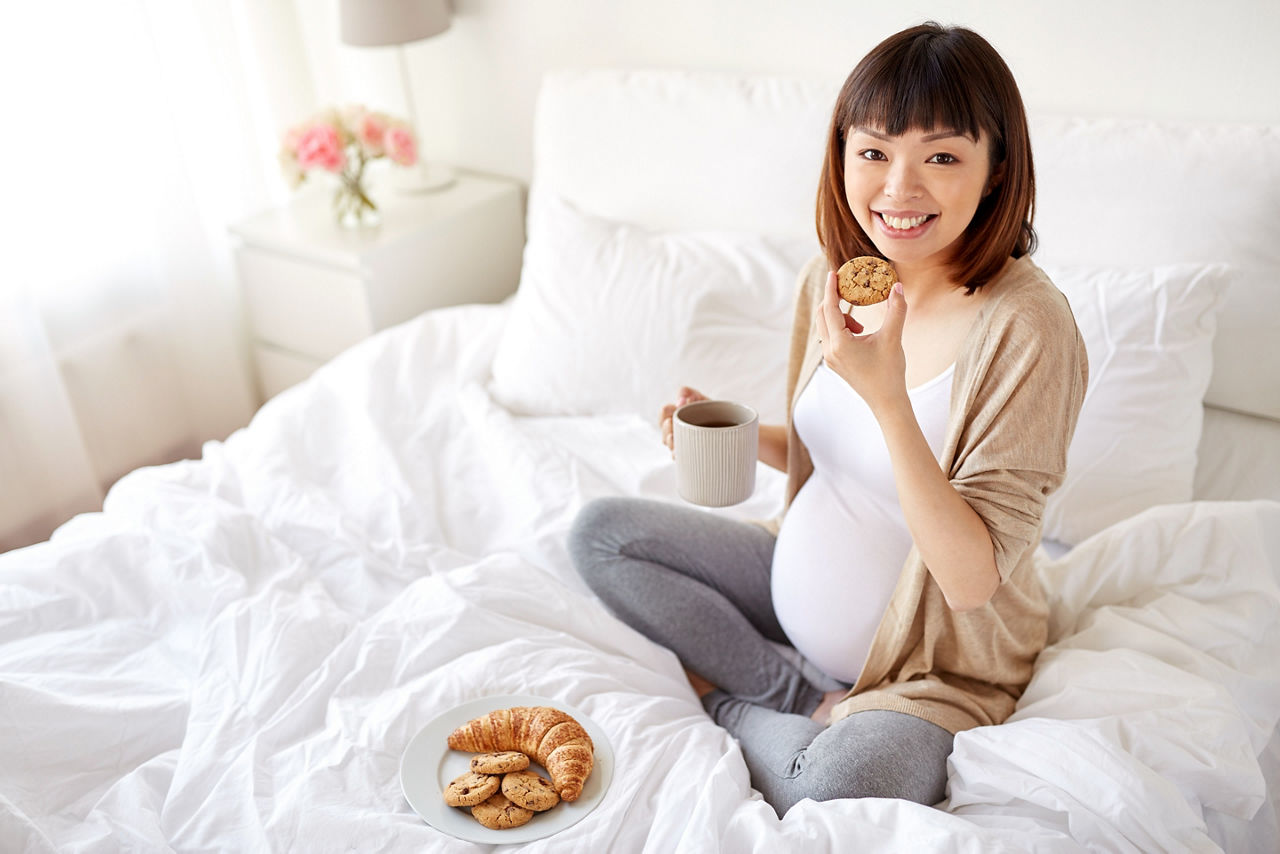Breastmilk is the best for babies. The World Health Organisation recommends exclusive breastfeeding for the first six months of life. Unnecessary introduction of bottle feeding or other food and drinks will have a negative impact on breastfeeding. After six months of age, infants should receive age-appropriate foods while breastfeeding continues for up to two years of age or beyond. Consult your doctor before deciding to use infant formula or if you have difficulty breastfeeding.
- Week 1
- Week 2
- Week 3
- Week 4
- Week 5
- Week 6
- Week 7
- Week 8
- Week 9
- Week 10
- Week 11
- Week 12
- Week 13
- Week 14
- Week 15
- Week 16
- Week 17
- Week 18
- Week 19
- Week 20
- Week 21
- Week 22
- Week 23
- Week 24
- Week 25
- Week 26
- Week 27
- Week 28
- Week 29
- Week 30
- Week 31
- Week 32
- Week 33
- Week 34
- Week 35
- Week 36
- Week 37
- Week 38
- Week 39
- Week 40
What Good Are Carbohydrates During Pregnancy?
Were you from the TAF Club? Do you hate the weighing scale? Well, weight gain is a perennial problem for some of us. But hold up – don’t even think about going on a low-carb diet while you’re pregnant! Carbohydrates provide essential fuel for you and baby– here’s more on how you benefit during pregnancy.
Rice and noodles are a staple for us in Singapore – and for good reason! Carbohydrates are the main source of energy in our diet1. They are broken down into simple sugars like glucose, which pass easily across the placenta and provide energy to support your growing baby during pregnancy.
There are different types of carbohydrates – starches, sugars and fibre2. For a steady supply of energy, ensure that bread, potatoes, pasta, rice and cereal make up about a third of the food you eat. Starchy foods also provide other important nutrients for your baby’s development, such as calcium, iron and B vitamins1.
Choose Healthy Carbohydrates During Pregnancy
The recommended dietary allowance (RDA) for carbohydrates during pregnancy is 175g per day, compared to 130g per day for non-pregnant women.[1]
GI is short for Glycaemic Index, a rating system that indicates how quickly food affects your blood sugar3. There are high-GI foods, and low-GI ones. High-GI foods, such as white bread, white rice, sugary foods such as cakes and biscuits, and potatoes3, can cause a rapid increase in blood glucose and insulin levels.
You can guess why low-GI foods are known to be healthier – they are broken down more slowly and keep blood sugar levels more stable3.
Examples of low-GI carbohydrates include3:
• Bananas
• Vegetables
• Porridge made from rolled oats
• Chickpeas and other pulses
• Wholegrain breads, cereals and pastas
To reduce your risk of gestational diabetes as well as other pregnancy complications4, base your diet on these healthier starches. Here’s a tip – eat a wide variety of slow-release, fibre-rich low-GI carbohydrates, and balance these out with some higher-GI foods to provide an occasional energy kick5!
A Note on Food Safety1
Since rice and grains are common high-GI foods, we have just the tip for you: bacteria can grow on cooked rice or grains that are left at room temperature. This will leave you ill. Instead of preparing your meal ahead of time, be sure to cook only when you’re ready to eat. Also, never reheat your cooked rice and grains more than once1!
1 https://www.nal.usda.gov/sites/default/files/fnic_uploads/energy_full_report.pdf

Connect with our team of experts
We provide advice and support for you on your parenthood journey




